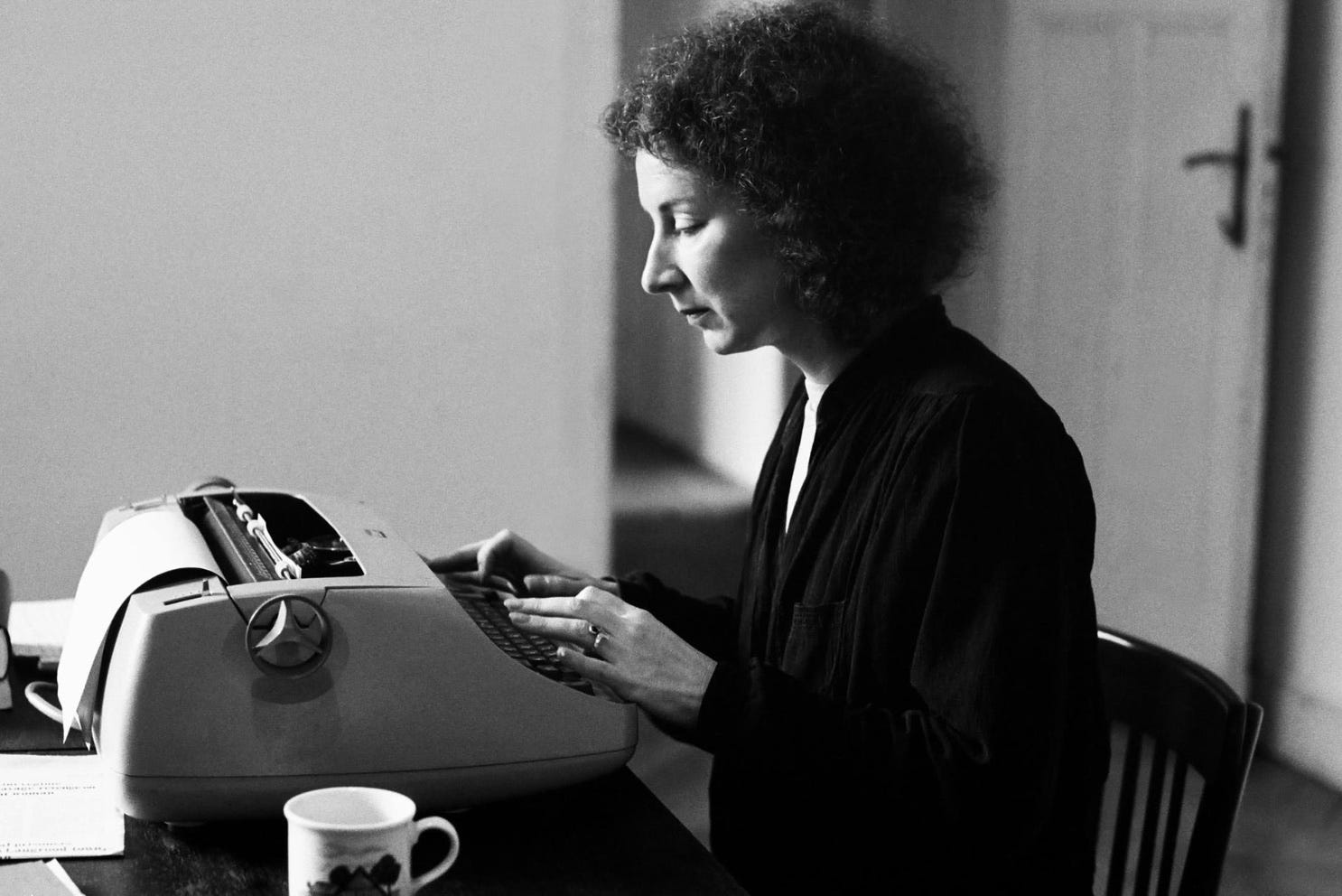“A word after a word after a word is power.” — Margaret Atwood
Welcome to the first day of Essay Camp.
You’re here. You’ve hopped virtual flights, slept through imaginary train journeys, and driven through fictional nights to arrive here together. I’m so glad you could make it. Welcome, one and all. It’s the first day of Essay Camp, and we’re going to write some essays.
(As always, some of you will be going rogue and plan to write something else, but I will get to that further down.)
Writing is hard. It is far harder than it has any business being. A lot of people think about becoming writers, imagining what it would be like to write, to create essays, or novels, or nonfiction books, and what that would feel like. They can see the books with their name on the spine, stacked on tables at lavish parties, at which they are the guest of honor. But it is much easier to abstractly imagine the benefits of something than to actually do it. When it comes time to put words on the page, they freeze. We all do, even those who have done it before. To start is often the hardest part of the process. The biggest difference between those who write and those who don’t is simply that first decision: to begin.
The thing that stops most of us is fear. We are afraid we will fail. We’re afraid we’ll appear stupid, or untalented, or uncool, or crazy, or boring. But this week, at the very least, I am here to tell you not to worry about any of that. I hereby give you permission to be as stupid, untalented, uncool, crazy, and boring as you need to be, in order to put one word after another down on the page. As Margaret Atwood said: “A word after a word after a word is power.”
So what is an essay? An essay can be long or short, personal or impersonal. It can express your truth, explain your stance, introduce an idea, or smash two seemingly unrelated topics together. Essays can be quiet or loud, modest or grandiose. They can tell readers what to think, or leave them to puzzle it out on their own. There’s sometimes an assumption that an essay must make an argument or tell a story with a clear lesson attached, but many of the best essays do neither of those things. To write an essay is to reach for something, not so much to explain as to explore.
You do not have to fully understand a story or a topic to write an essay about it. Not only can you write to find out what it is you think or feel about something, but doing so is highly encouraged.
As I wrote in a previous Essay Camp session, a lot of beginning writers have been given the impression that in order to write a powerful essay, they must get very personal, and dredge up the hardest, worst, or most interesting thing that has ever happened to them, and write about that. They think that their past must be strip-mined in this way, for content. But that is not really true. While you are certainly welcome to write about whatever you want this week, you do not need to go there, as it were. In the kingdom of essays, all subjects are equal. Besides, the things you don’t write about will shine through anyway, adding color to the things you do. Only you will know where the shine comes from.
This week as you write, you are encouraged to tune out all external noise about what is right or wrong, good or bad when it comes to writing. Focus only on telling the truth. No one ever has to see these first drafts but you, so write in whatever way feels the most true to you.
The only thing I really want you to focus on doing today is to begin.
I’m going to use the same metaphor that I’ve used before. Our habits, our fears, our preconceived ideas of work, and art, and self, can sometimes feel like an itchy old coat that we wear, day in and day out. Now that it’s spring, let’s take the coat off. Forget the self, and shrug free of routine identity. Lose your voice and walk voiceless into the place inside of you where voice does not exist. There are words there. Grab them. Take them from where they lie gleaming in the dark and carry them out with you into the light.
Let’s begin.
Keep reading with a 7-day free trial
Subscribe to A Writer's Notebook to keep reading this post and get 7 days of free access to the full post archives.




